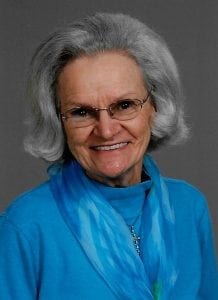I’ve known some wonderful fathers throughout my life. My own father was a gem. My siblings agree. However, it was not until I became immersed in the rare disease world that I met so many fathers willing to take on the many challenges they face when their children are diagnosed with a rare disease.
These challenges are not something anyone can prepare for. There are no high school or college courses called, “How to raise a child with a rare disease.” Even those with medical training have not been prepared. Yet, men from all walks of life, with different backgrounds from throughout the world have not only accepted these challenges, but they have gone to extraordinary measures to do what they can for their children as well as other children with rare diseases. Not all of these men are the biological fathers of the children. Some have adopted or married into a family with a rare disease child. Others may be brothers, uncles, or grandfathers.
You might not know about these exceptional men if you see them in public without their children. But if you attended a rare disease group conference, you would find men taking care of children, giving presentations, and talking about the companies they have started, the research they are involved in, the fundraisers they have participated in, the mountains they have climbed, and the tears they have shed whenever one of the children they have come to love is having a difficult time. The love they show for these children is displayed as they serve on the boards of rare disease associations, create special appliances for those who need them, and sometimes work at jobs they really don’t like, but must do in order to provide the all-important medical insurance.
You might meet more than one father who was shocked to learn that there was no treatment for his child’s condition, so he set out to find one by pounding the pavement to raise awareness and to raise funds in order to find at least one doctor who would work with them to search for solutions.
Some fathers have taken out second mortgages on their homes so they can travel to foreign countries, because they’ve learned that there are doctors there who might be able to help their child. Some have moved their entire families to a country where they don’t even know the language, so their child would have a chance at life.
There are fathers who have traveled great distances in order to establish organizations, believing that they might be able to interest medical researchers if they could gather together enough people with the same rare condition.
These fathers don’t often get to participate in many of the leisure activities that many fathers do. Just about all of their activities revolve around the needs of the special child. They’re rarely able to take real vacations.
When our daughter Kelley was very young, my husband, Bob, and I appreciated my father’s help if Bob had to be at work. Dad was patient while we spent hours at appointments and he listened to my frustrations when we ran into negative situations. If Kelley was hospitalized, Bob was there whenever he could be to shower her with love. Of most importance to me was that Bob backed me up when I had to battle on Kelley’s behalf.
These extraordinary dads have been meeting the needs of rare disease children despite the heartbreak they feel when they watch their children suffer, and the anguish they feel when they have to accept the premature death of their children. On Father’s Day, let’s show them our gratitude.
 About the Author: Denise Crompton and her husband Bob, raised four children, the oldest of whom, Kelley, had the rare disease of Mucolipidosis 3. The many years that they spent caring for Kelley prompted Denise to write two books. Kelley’s Journey: Facing a Rare Disease with Courage chronicles their own daughter’s experiences. Diagnosis: Rare Disease includes some of the experiences of 12 more families, and was written to help raise awareness of all that is involved in living with rare conditions. All of Denise’s royalties go toward rare disease research. The Cromptons live in New Hampshire, where they spend their retirement years enjoying their many grandchildren, while still reaching out to help families with rare diseases.
About the Author: Denise Crompton and her husband Bob, raised four children, the oldest of whom, Kelley, had the rare disease of Mucolipidosis 3. The many years that they spent caring for Kelley prompted Denise to write two books. Kelley’s Journey: Facing a Rare Disease with Courage chronicles their own daughter’s experiences. Diagnosis: Rare Disease includes some of the experiences of 12 more families, and was written to help raise awareness of all that is involved in living with rare conditions. All of Denise’s royalties go toward rare disease research. The Cromptons live in New Hampshire, where they spend their retirement years enjoying their many grandchildren, while still reaching out to help families with rare diseases.







